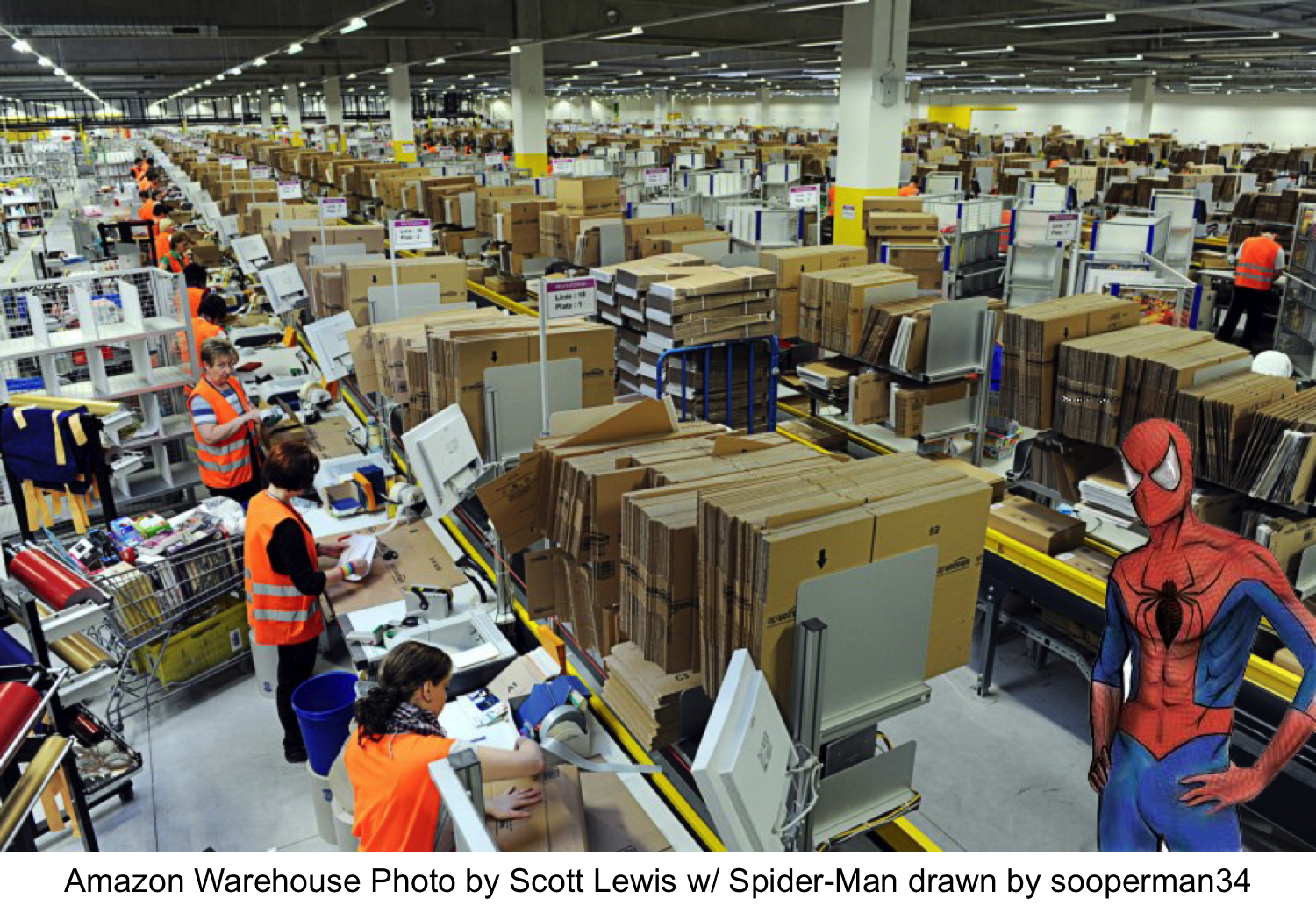
 So as not to “bury the lead” as they say in journalism, let me start this blog by stating that Amazon is entering the international shipping game as a freight forwarder.
So as not to “bury the lead” as they say in journalism, let me start this blog by stating that Amazon is entering the international shipping game as a freight forwarder.
I seem to remember a time when Amazon was a little website that sold books. There was actually a moment when I was surprised to learn you could buy more than books on Amazon. Now, let’s be real, Amazon is trying to take over the world.
When someone or something is as good at taking over the world in the movies as Amazon appears to be at it in real life, there is usually a superhero that shows up to stop him, her, or it. But in real life there is no Spider-Man with a tingling spider sense warning him of danger who shows up to stop the impending world domination.
And Amazon is dominating.
Amazon isn’t just a site where people can buy and sell goods. Amazon is a movie and TV show streaming service. But that wasn’t enough for Amazon. Amazon decided it wanted to make and distribute movies, so the company also became a movie studio.
Some people scoffed at that move. I heard and read numerous comments doubting Amazon would ever actually make any films or TV shows. Now the company has over 150 production company credits and nearly 25 distributor credits on IMDb.
Yeah, no one is scoffing now.
Amazon is thriving worldwide, selling goods in major countries in North America, Europe, and Asia with its marketplaces in the U.S., Canada, the U.K., France, Spain, Germany, Italy, India, Japan, and China.
You think that won’t expand?
Not only does Amazon create a marketplace for people and businesses to sell products through, the company expanded services with Fulfillment by Amazon (FBA), where Amazon stores products for its online sellers in its own fulfillment centers, and then picks, packs, ships, and provides customer service for these products.
It was only a matter of time before Amazon would take that to the next level and become a full fledged freight forwarder, able to handle international shipping for shippers and sellers of goods.
Amazon acquiring the license to become a freight forwarder is all over the news.
“[Amazon’s] Chinese affiliate, Amazon China, has registered with the U.S. Federal Maritime Commission to become a licensed ocean freight forwarder.”
“[Amazon’s] China subsidiary has applied for and received a U.S. maritime freight forwarding license.”
“A subsidiary of e-commerce company Amazon has registered as a foreign-owned NVOCC with the Federal Maritime Commission, a move that has sparked further speculation that the online retailer is expanding into the transportation business.”
There are dozens more news articles I could quote similar lines from about Amazon registering with the FMC to become a non vessel operating common carrier (NVOCC), giving the giant company the ability to get into ocean shipping.
Yeah, it’s a big deal.
And it should be noted this move into ocean shipping comes after USA Today reported Amazon to be “in talks to lease 20 Boeing 767 freighter jets.”
It looks like Amazon is jumping into international shipping head first, swimming toward both air freight and ocean shipping services!
Yes, it makes sense. Yes, it increases the services Amazon can offer to its online sellers. But is it actually good for people and businesses that import goods from China, and elsewhere, to sell on Amazon?
I may not have a spidey-sense that tingles and warns me of danger, but my shipping sense is tingling.
While Amazon could just be laying the groundword to make its FBA services better for its sellers with its ability to handle ocean freight and air shipments, controlling this much of the world market process could push many sellers out of the marketplace.
Chinese manufacturers could more easily just sell to U.S. consumers directly, cutting out American sellers altogether. Worse, with power over the marketplace and shipping, Amazon could end up edging out U.S. sellers itself.
Check out the way Ryan Petersen describes the dangers in his Flexport blog, answering the question, “Why does becoming an ocean freight forwarder make sense for Amazon China but not for Amazon itself?”:
Because Amazon’s ocean freight services will be far more attractive to Chinese sellers than to American buyers. Chinese suppliers would love direct access to Amazon’s vast American customer base. But the idea of buying ocean freight is far less appealing for U.S. companies selling on the Amazon Marketplace.
As the freight forwarder on a company’s shipments, Amazon would see both the name of the supplier and the wholesale price paid by the importer. For most of the more than 40,000 sellers currently earning over $1 million per year selling products on Amazon, this data is too sensitive to entrust with a company that is both a primary distribution channel and a ruthless competitor. It would be too easy for Amazon to use that data against them, either as an anchor in price negotiations, or worse, to purchase directly from the supplier, cutting the U.S. merchant out altogether.
Amazon’s power is growing. How will it handle adding ocean freight and air shipping to its list of powers?
While Amazon may not yet be to the point of operating as a freight forwarder or NVOCC, shippers who import and sell on Amazon must be hoping that when the e-commerce giant is to that point it remembers Spider-Man’s mantra: With great power comes great responsibility.
Unfortunately, Sir John Dalberg-Acton’s saying about power is the one that more often seems to ring true in the real world: Power tends to corrupt, and absolute power corrupts absolutely.
![]()
Source: UC Blog
Discover more from reviewer4you.com
Subscribe to get the latest posts to your email.






